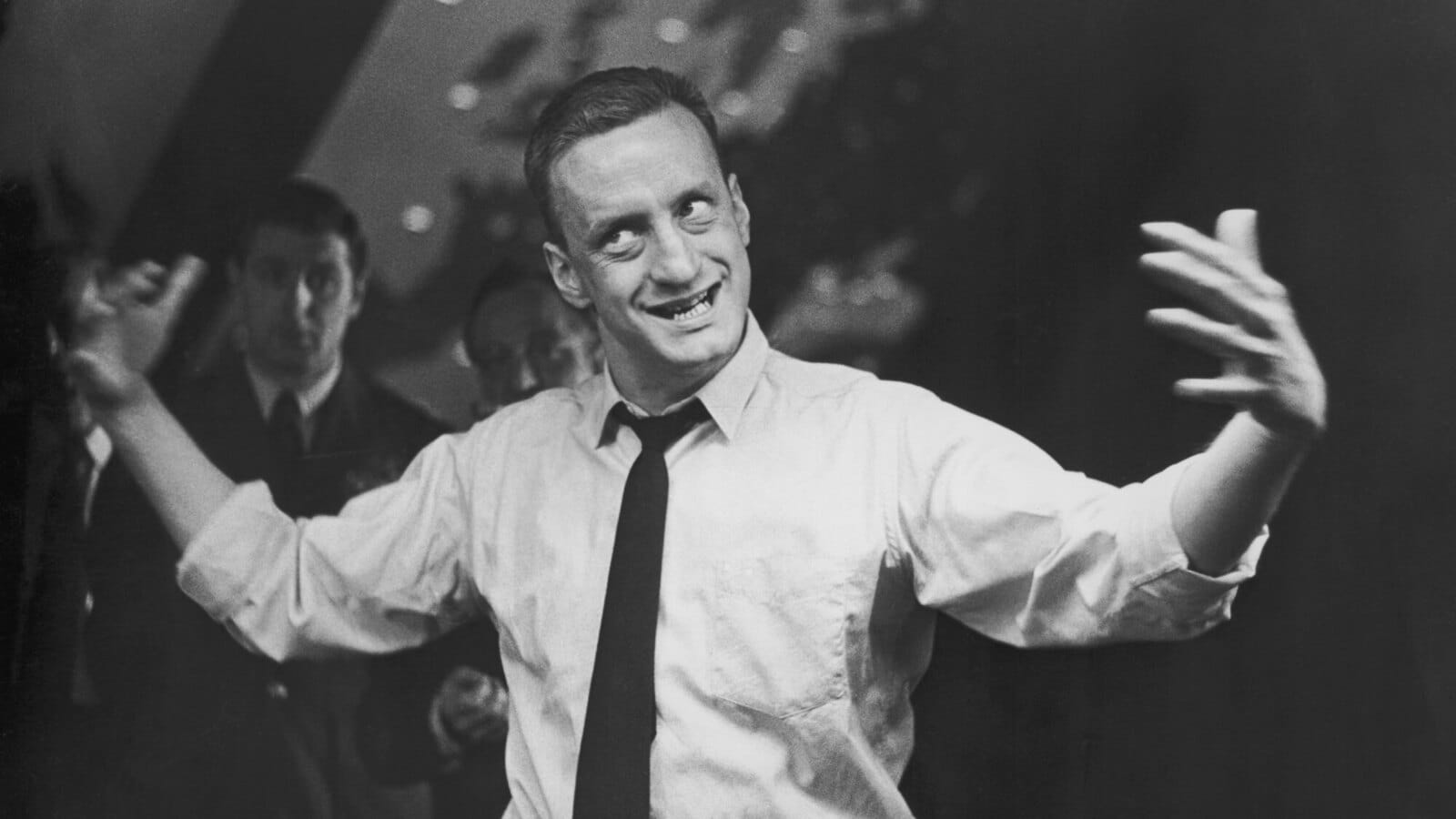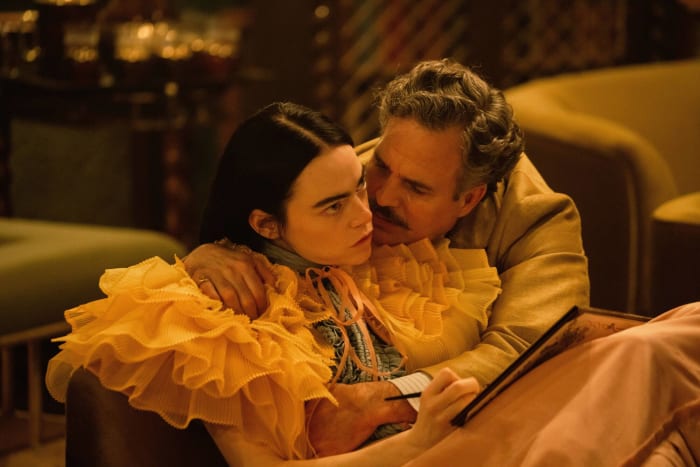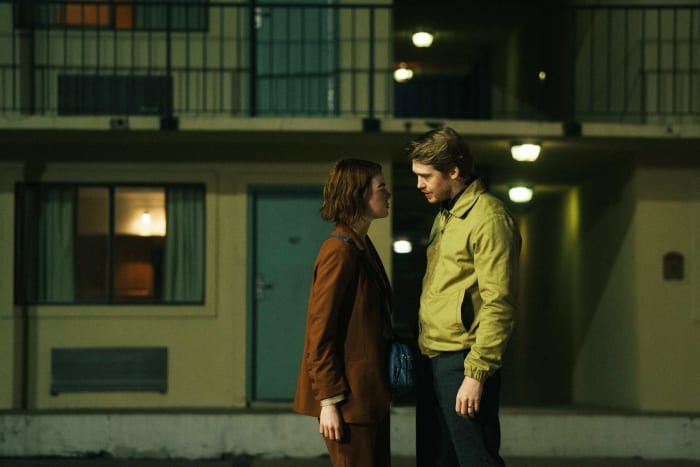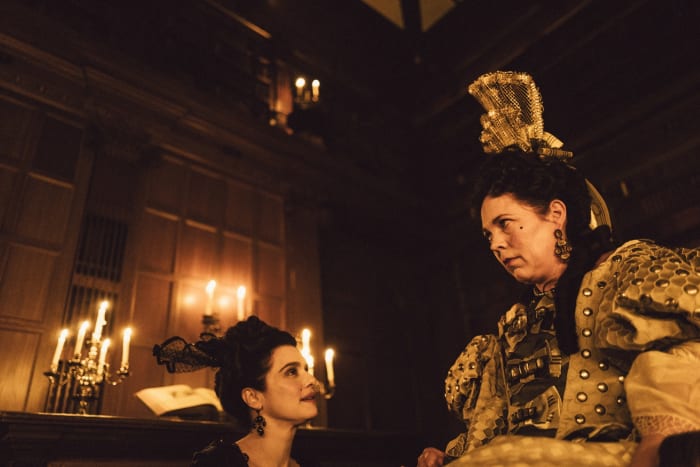- Home
- Quizzes
- My Quiz Activity
- Newsletters
- Sports Betting
- MY FAVORITES
- Add Sports/Teams
- SPORTS
-
NFL
- NFL Home
- Arizona Cardinals
- Atlanta Falcons
- Baltimore Ravens
- Buffalo Bills
- Carolina Panthers
- Chicago Bears
- Cincinnati Bengals
- Cleveland Browns
- Dallas Cowboys
- Denver Broncos
- Detroit Lions
- Green Bay Packers
- Houston Texans
- Indianapolis Colts
- Jacksonville Jaguars
- Kansas City Chiefs
- Las Vegas Raiders
- Los Angeles Chargers
- Los Angeles Rams
- Miami Dolphins
- Minnesota Vikings
- New England Patriots
- New Orleans Saints
- New York Jets
- New York Giants
- Philadelphia Eagles
- Pittsburgh Steelers
- San Francisco 49ers
- Seattle Seahawks
- Tampa Bay Buccaneers
- Tennessee Titans
- Washington Commanders
-
MLB
- MLB Home
- Arizona Diamondbacks
- Atlanta Braves
- Baltimore Orioles
- Boston Red Sox
- Chicago White Sox
- Chicago Cubs
- Cincinnati Reds
- Cleveland Guardians
- Colorado Rockies
- Detroit Tigers
- Houston Astros
- Kansas City Royals
- Los Angeles Angels
- Los Angeles Dodgers
- Miami Marlins
- Milwaukee Brewers
- Minnesota Twins
- New York Yankees
- New York Mets
- Oakland Athletics
- Philadelphia Phillies
- Pittsburgh Pirates
- San Diego Padres
- San Francisco Giants
- Seattle Mariners
- St. Louis Cardinals
- Tampa Bay Rays
- Texas Rangers
- Toronto Blue Jays
- Washington Nationals
-
NBA
- NBA Home
- Atlanta Hawks
- Boston Celtics
- Brooklyn Nets
- Charlotte Hornets
- Chicago Bulls
- Cleveland Cavaliers
- Dallas Mavericks
- Denver Nuggets
- Detroit Pistons
- Golden State Warriors
- Houston Rockets
- Indiana Pacers
- Los Angeles Clippers
- Los Angeles Lakers
- Memphis Grizzlies
- Miami Heat
- Milwaukee Bucks
- Minnesota Timberwolves
- New Orleans Pelicans
- New York Knicks
- Oklahoma City Thunder
- Orlando Magic
- Philadelphia 76ers
- Phoenix Suns
- Portland Trail Blazers
- Sacramento Kings
- San Antonio Spurs
- Toronto Raptors
- Utah Jazz
- Washington Wizards
-
NHL
- NHL Home
- Anaheim Ducks
- Boston Bruins
- Buffalo Sabres
- Calgary Flames
- Carolina Hurricanes
- Chicago Blackhawks
- Colorado Avalanche
- Columbus Blue Jackets
- Dallas Stars
- Detroit Red Wings
- Edmonton Oilers
- Florida Panthers
- Los Angeles Kings
- Minnesota Wild
- Montreal Canadiens
- Nashville Predators
- New Jersey Devils
- New York Islanders
- New York Rangers
- Ottawa Senators
- Philadelphia Flyers
- Pittsburgh Penguins
- San Jose Sharks
- Seattle Kraken
- St. Louis Blues
- Tampa Bay Lightning
- Toronto Maple Leafs
- Utah Hockey Club
- Vancouver Canucks
- Vegas Golden Knights
- Washington Capitals
- Winnipeg Jets
- NCAAF
- NCAAM
- Olympics
- Boxing
- Entertainment
- Lifestyle
- Golf
- MMA
- Soccer
- Tennis
- Wrestling
- More Sports
- RESOURCES
- My Account
- YB on Facebook
- YB on Twitter
- YB on Flipboard
- Contact Us
- Privacy Policy
- Terms of Service

There’s something uniquely pleasurable about absurdist films. These movies tend to ask a lot of viewers, encouraging them to let go of the normal way of making sense of the world and embrace the strange, the surreal, and the upsetting. Some filmmakers — Yorgos Lanthimos and David Lynch come to mind — have made careers out of absurdity, while others have only dabbled in this particular aesthetic. The best absurdist films highlight the ridiculousness of the (post)modern world yet find bleak humor amid all the uncertainty.
'Drive-Away Dolls'

Though the Coen Brothers have most often worked as a pair, they have also done solo films. 2024 saw the release of Drive-Away Dolls from Ethan Coen. The film is very much a buddy comedy, focusing in particular on a pair of lesbian friends who go on a road trip, but it makes several swerves into the absurd, particularly at the beginning and the end. While not every note lands as effectively as it might, it nevertheless manages to be genuinely hilarious at times, thanks in no small part to the performances from Margaret Qualley and Geraldine Viswanathan.
'The Grand Budapest Hotel'

If there’s one word with which one can describe Wes Anderson, it would have to be quirky. The director has a unique visual style that is all his own, and his movies sometimes verge on sacrificing style for substance. The Grand Budapest Hotel is arguably one of his best. Ralph Fiennes and Tony Revolori give nuanced human performances as a concierge and his assistant who go on several extraordinary adventures. The film is often absurd but never silly, and it always manages to keep its dramatic and comedic elements in a delicate and refined balance.
'Hail, Caesar!'

The Coen Brothers have long had an intimate relationship with the absurd, and many of their films contain elements of this sensibility. One of the most notable in this regard is Hail, Caesar! Which focuses on Eddie Mannix, a fixer for a big Hollywood studio who works behind the scenes to keep the studio and its stars from falling apart. In addition to being a lovingly tongue-in-cheek homage to the films of classic Hollywood, the film contains many brilliantly absurd moments, including one in which a fussy director (played by Ralph Fiennes) tries to teach evolution to a singing cowboy (Alden Ehrenreich).
'Swiss Army Man'

Having established his fame as Harry Potter, Daniel Radcliffe has carved out a niche for himself, acting in several strange and offbeat projects. Perhaps the strangest of these is Swiss Army Man, in which he actually plays a corpse who becomes the companion of a shipwrecked man named Hank Thompson (played by Paul Dano). There’s something remarkably refreshing about Swiss Army Man, which doesn’t try to hide from its weirdness but instead forces the audience to take it on its terms.
'Stranger than Fiction'

Even though Will Ferrell is best known for his outlandish comedy stylings, he’s also shown a more nuanced side, particularly in Stranger than Fiction. In this case, he plays Harold Crick, who discovers he is actually living inside a book someone else is writing. The film strikes just the right balance between the absurd and the poignant, giving Ferrell a chance to show his range as an actor. It also features performances from a number of other talented performers, including Maggie Gyllenhaal and Emma Thompson.
'Everything Everywhere All At Once'

Everything Everywhere All At Once was the unexpected critical darling of 2022, and it ended up accruing a remarkable number of Oscars. The heart of the story is Michelle Yeoh’s Evelyn Quan Wang, who gets pulled into a multiversal adventure in which she has to defeat the sinister being known as Jobu Tupaki (who is, it turns out, her daughter). The film takes some deliciously strange turns but never loses sight of the fundamentally human drama at its heart: the vexed bond between a mother and her daughter.
'Poor Things'

Unlike many of Yorgos Lanthimos’ films, Poor Things is based on a novel rather than an original screenplay. It largely focuses on Emma Stone’s Bella Baxter, a young woman who is given the mind of a child by her scientist father/maker. The film is earthy, vulgar, and adventurous, and it pulls no punches when it comes to showing Bella’s journey to sexual self-discovery. The film also doesn’t shy away from the ridiculousness and absurdity of human sexuality, and this, along with Stone’s dynamic performance, gives it its extraordinary power.
'Kinds of Kindness'

Throughout his career, Yorgos Lanthimos has shown a remarkable ability to showcase the absurdity of the human condition. In Kinds of Kindness, he gives viewers three different stories, all of which focus on the extreme lengths to which people will go to achieve some measure of closeness to others and meaning in their lives. It’s bitingly funny, as so many of Lanthimos’ films are, and though the three vignettes vary in terms of their coherence, there’s no doubt that Jesse Plemons, Willem Dafoe, and Emma Stone (who star in all three) are at the top of their game.
'The Banshees of Inisherin'

The Banshees of Inisherin is, at root, about the fractured friendship between Colin Farrell’s Pádraic Súilleabháin and Brendan Gleeson’s Colm Doherty, who abruptly decides he no longer wants to be Pádraic’s friend. There’s a tone of dark humor that runs through the film, and this highlights the tragedy at its heart. Moreover, it has many absurd moments, from Colm cutting off his fingers in protest of his former friend’s persistence to a donkey choking on said fingers.
'Raw'

The last decade has seen a surprising number of films engage with the fraught issue of human cannibalism, including Julia Ducournau’s Raw. On one level, the film is a coming-of-age story focusing on the young woman Justine as she undergoes hazing rituals at veterinary school, only to start developing a taste for human flesh, even as she has to navigate her relationship with her sister Justine. It’s a film that is disturbing in its absurdity, and Ducournau proved she was a filmmaker willing to use the medium to explore darker feminist waters.
'Dr. Strangelove or: How I Learned to Stop Worrying and Love the Bomb'

If there were one director of the postwar years who had a keen sense of the absurdity of the human condition, it would have to be Stanley Kubrick. He really outdid himself in Dr. Strangelove, which is a black comedy focusing on the events leading up to nuclear armageddon. Released in 1964, it perfectly captures all the bleak absurdity of the nuclear age, in which humanity finally found the power to destroy itself but ultimately had no idea how to contend with its paradoxical power. Peter Sellers delivers one of the best performances of his career, appearing as three separate characters (Dr. Strangelove, President Merklin Muffley, and Group Captain Lionel Mandrake).
'Airplane!'

Not every spoof succeeds, but Airplane! manages to be hugely entertaining thanks to its keen understanding of the nuts and bolts of 1970s disaster films (and those from earlier decades). The film throws everything at the wall, and the absurdity of some of its premises and characters elevates it to the level of parodic greatness. Of particular note is Leslie Nielsen, who would go on to prove he was even more talented at comedy than in drama. As all of this wasn't enough, the film also features a cameo by Ethel Merman, her last screen role.
'Eraserhead'

David Lynch has made an entire career out of creating films that are bizarre and unsettling works of art. Perhaps no film illustrates this as much as Eraserhead, with its story about a man, Henry Spencer, who struggles to rear a strange child. It is almost impossible to summarize accurately, and its emphasis on body horror (as well as a dash of bleak comedy) remains key to its appeal. It certainly sets the stage for many of the director’s later works, which always contain at least a measure of his earlier iconoclasm.
'Being John Malkovich'

Being John Malkovich has such a strange premise — a man discovers a door that, as the title suggests, leads into the mind of John Malkovich — that it’s hard to see how it would actually work. Somehow, though, it does, thanks to some great performances from John Cusack and Cameron Diaz and a smart (and surreal) script. It’s the kind of film that manages to use its strangeness to engage with some big ideas without losing sight of the romance that remains a key part of the plot.
'Birdman (or the Unexpected Virtue of Ignorance)'

The critically praised Birdman, directed by Alejandro González Iñárritu, focuses on Michael Keaton's Riggan, an actor famous for playing Birdman, and his efforts to revitalize his career. The film constantly plays with reality — not least by being framed as one continuous take — but it’s also about the ephemerality of fame and how desperately some cling to it even as it slips beyond their grasp. By turns bleakly funny and achingly tragic, Birdman gives Keaton the chance to demonstrate once again why he is one of the most remarkable actors of his generation.
'Tusk'

Kevin Smith has always had an irreverent approach to filmmaking, and he takes this to horror extremes in Tusk. Justin Long stars as a podcaster who is taken prisoner by a recluse who wants to turn him into a walrus by sewing him into a costume made of human skin. The film threads the needle between horror and hilarity, and there is something particularly unsettling about the absurdity of its premise. While Long’s Wallace is ultimately rescued, it’s too late to restore him to humanity, and it seems he will have to live out the rest of his life as a walrus, an absurdist ending if ever there was one.
'The Favourite'

Set during the reign of Queen Anne (played by Olivia Colman), Yorgos Lanthimos’ The Favourite primarily focuses on cousins Abigail (Emma Stone) and Sarah (Rachel Weisz) as they compete for the ailing queen’s love and affection. Part black comedy and part costume drama, this film highlights the absurdity of living under the rule of a monarch who has well and truly lost control of both her own body and the realm she seems to rule. All three actresses at the center of the drama give remarkable performances, and the film achieves the rare fate of being both bleakly hilarious and unbearably tragic.
'The Lobster'

Yorgos Lanthimos’ The Lobster showcases all the biting absurdity for which the director has become famous. In the world where the film takes place, people have to find a partner or turn into animals. Colin Farrell delivers a remarkable performance in the film, which showcases many of the black comedy and surrealist elements that characterize Lanthimos’ English-language work. And, like so many of the director’s other efforts, it also uses its strange setup and even stranger execution to offer some scathing commentary on contemporary society and its obsession with coupledom.
'Sorry to Bother You'

LaKeith Stanfield has made some very brave choices when it comes to his projects. Few of his films are as strange as Sorry to Bother You, in which he plays a telemarketer, Cash Green, whose life takes some strange turns once he becomes involved in a corporate conspiracy. Among other things, he discovers human/horse hybrids and even becomes one himself. It’s one of those films that manages to be thought-provoking, funny, and more than a little disquieting all at the same time.
'Life of Brian'

Starring the various members of the Monty Python troupe, Life of Brian is a riotous and utterly absurd spoof of the biblical epics that were such a key part of Hollywood production in the 1950s and 1960s. As its title suggests, the action focuses primarily on Brian, whose own life repeatedly intersects with that of Jesus, often with hilarious (though also with tragic) results. It leads to the most hilarious and disturbing moment, in which various crucified criminals, including Brian, break into riotous song.
Thomas J. West III earned a PhD in film and screen studies from Syracuse University in 2018. His writing on film and TV has appeared at Screen Rant, Screenology, FanFare, Primetimer, Cinemania, and in a number of scholarly journals and edited collections. He co-hosts the Queens of the B's podcast and writes a regular newsletter, Omnivorous, on Substack. He is also an active member of GALECA, the Society of LGBTQ Entertainment Critics.
More must-reads:
- The 20 best animated movies that went straight to streaming
- Cam Newton is a perfect fit for ESPN's 'First Take'
- 21 celebrities who proved who proved bald is beautiful
Trending in Entertainment
Customize Your Newsletter
 +
+
Get the latest news and rumors, customized to your favorite sports and teams. Emailed daily. Always free!
Use of this website (including any and all parts and
components) constitutes your acceptance of these
Terms of Service and Privacy Policy.
This site is for entertainment purposes only.
There is no gambling offered on this site.
Gambling Problem? Call 1-800-Gambler.
